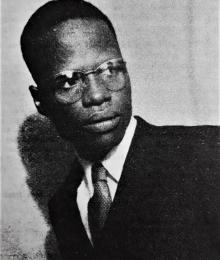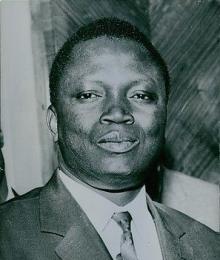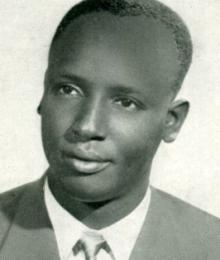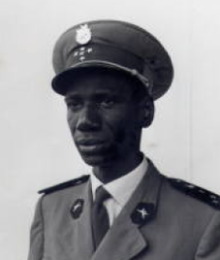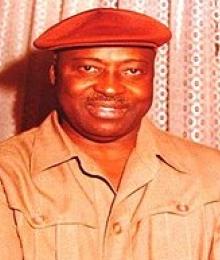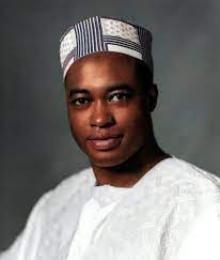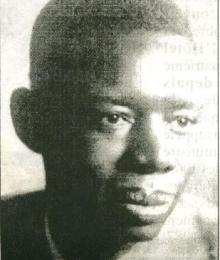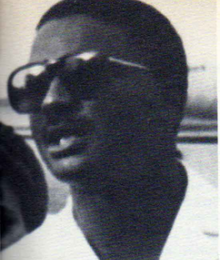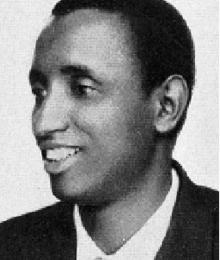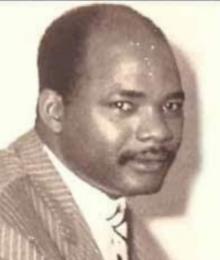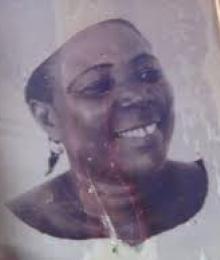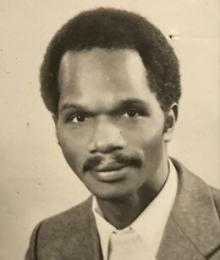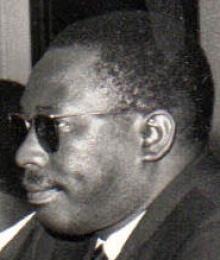
Mamadi Keïta was a prominent figure in Guinea's First Republic, born in 1933 in Kankan and deceased in July 1985. A brilliant intellectual, he earned a doctorate in philosophy from the University of Geneva before becoming a key player in Guinea's political landscape. As a close collaborator of President Sékou Touré, whose brother-in-law he was, Keïta climbed the ranks of power, holding important positions such as member of the Political Bureau of the Democratic Party of Guinea and Minister of Higher Education and Scientific Research.
His career illustrates the complexities of post-independence Guinean politics, combining significant contributions to the country's development with involvement in controversial aspects of the regime. His journey ended tragically with his execution in 1985, following a coup d'état, thus marking the tumultuous end of a life devoted to politics and education in Guinea.
Introduction
Mamadi Keïta, an iconic figure in Guinean politics, left an indelible mark on his country's history during the tumultuous period of the First Republic. Born in 1933 in Kankan and deceased in July 1985, his journey illustrates the complexities and challenges Guinea faced in its early years of independence. A brilliant intellectual, influential politician, and close collaborator of President Sékou Touré, Keïta played a crucial role in shaping and evolving the post-colonial Guinean state.
Education
Mamadi Keïta's education reflects the typical path of African elites of his generation, educated between Africa and Europe. Born in the historic city of Kankan in French Guinea, Keïta quickly demonstrated intellectual aptitudes that led him to pursue higher education in Paris. In the French capital, he immersed himself in the study of philosophy, a discipline that would profoundly influence his political thinking and approach to governance.
During his stay in Paris, Keïta was not content with being a mere student. He actively involved himself in student movements, becoming the leader of the West African Students' Organization. This position allowed him to develop his leadership skills and forge links with other future African leaders. However, his political activism eventually came at a cost: in 1961, he was expelled from France, an event that marked a turning point in his life.
Far from being discouraged by this expulsion, Keïta continued his studies in Switzerland, where he obtained a doctorate in philosophy from the University of Geneva. This thorough training in philosophy undoubtedly contributed to shaping his worldview and approach to politics, providing him with an intellectual framework to analyze the challenges Guinea faced.
Professional Career
Upon returning to his homeland after his studies in Europe, Mamadi Keïta embraced an academic career that would quickly propel him to the top of the Guinean educational system. He began as a professor at the University of Conakry, where his teaching skills and expertise in philosophy were quickly recognized.
His progression within the institution was meteoric. Keïta became dean, demonstrating his management and leadership abilities in the academic world. The culmination of his university career was his appointment as president of the University of Conakry, a position that allowed him to significantly influence the direction of higher education in Guinea.
In this role, Keïta was likely faced with the challenge of reconciling academic aspirations with the political realities of Guinea under Sékou Touré. His professional journey illustrates how education and politics were closely intertwined in post-independence Guinea, where intellectuals often played a key role in shaping national identity and implementing government policies.
Political Career
Mamadi Keïta's political career is inseparable from the history of Guinea's First Republic and his close ties to President Sékou Touré. His entry into the inner circle of power was facilitated by his status as the half-brother of the president's wife, Andrée Touré. This family connection opened doors for him, but it was his intelligence and ideological commitment that allowed him to maintain and thrive in this position.
Keïta quickly became an influential member of the Democratic Party of Guinea (PDG), the ruling single party. His appointment to the central committee for ideological affairs testifies to the importance given to his ability to articulate and defend the regime's political vision. In this role, he contributed to shaping the party's doctrine and justifying its actions, sometimes controversial.
His rise within the party placed him at the heart of power struggles that characterized Touré's regime. In 1972, Keïta was at the head of the left-wing faction within the political bureau, engaged in an intense rivalry with Ismaël Touré for the position of potential successor to the president. This period illustrates the ideological and personal tensions that existed within the Guinean ruling elite.
Minister
Mamadi Keïta's ministerial career reflects the power fluctuations within Sékou Touré's regime. Following the party's 9th congress in 1972, which saw a shift towards the center-right, Keïta was appointed Minister of Culture and Education. Although this position could be perceived as a demotion compared to his ambitions, it nevertheless allowed him to continue exerting significant influence on the ideological formation of Guinean youth.
Later, Keïta held the position of Minister of Higher Education and Scientific Research. In this role, he represented Guinea on the international stage, participating in important meetings of UNESCO and ISESCO. His appointment as vice-president of UNESCO's executive council in December 1983 testifies to his international stature and the recognition of his skills beyond Guinea's borders.
These ministerial responsibilities allowed Keïta to play a crucial role in defining and implementing Guinea's educational and cultural policies, thus contributing to shaping the national identity and intellectual development of the country.
Death
Mamadi Keïta's tragic end is emblematic of the political turbulence that shook Guinea after Sékou Touré's death. Arrested on April 3, 1984, as part of the coup d'état that followed the president's death, Keïta saw his political fortune collapse abruptly.
His execution in July 1985, following the coup attempt led by Diarra Traoré, marks the violent end of a tumultuous political career. This tragic death underlines the brutality of political transitions in Guinea and the often fatal fate reserved for former collaborators of fallen regimes.
Private Life
Although details of Mamadi Keïta's private life are less documented than his public career, his status as the half-brother of Sékou Touré's wife suggests complex family ties within the Guinean political elite. These connections undoubtedly played a crucial role in his personal and professional trajectory, illustrating the importance of family networks in Guinean politics of the time.
Conclusion
Mamadi Keïta embodies the contradictions and complexities of Guinea's First Republic. A brilliant intellectual and influential politician, he contributed significantly to the formation of the post-colonial Guinean state. His journey, from university to the highest spheres of power, testifies to the importance given to intellectuals in nation-building.
However, his participation in repressive acts and his tragic end reveal the dark aspects of Sékou Touré's regime and the inherent dangers of proximity to power in an authoritarian system. Keïta's legacy thus remains ambivalent, mixing intellectual contributions and involvement in the regime's excesses.
His story offers a fascinating insight into the political dynamics of post-independence Guinea and highlights the challenges faced by African leaders in building their nations. The life of Mamadi Keïta continues to interest historians and political scientists, offering valuable lessons on leadership, power, and the complexities of governance in post-colonial Africa.











